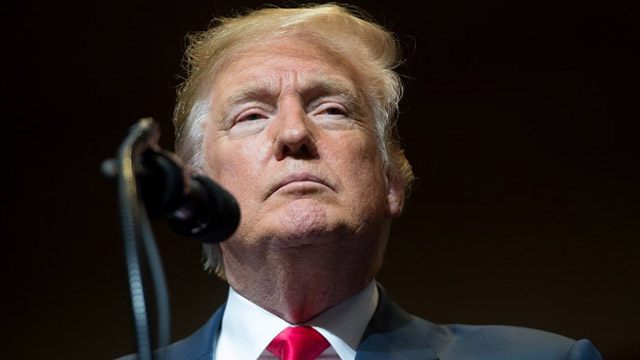
Last week was a particularly rough one for journalists and truth-seeking citizens.
President Donald Trump declared the news media the nation's worst enemy. And time after shocking time, his acolytes demeaned or threatened reporters for doing one of their most basic jobs: asking questions of those in power.
Secretary of State Mike Pompeo told a reporter in North Korea that it was "insulting and ridiculous and ludicrous" for him to be asked about details of the verification process for the vaunted denuclearization.
Trump campaign manager Brad Parscale suggested taking a CNN reporter's credentials away after he shouted a question at the president.
It was ugly. Even uglier than usual.
And the president's anti-media campaign is convincing at least some citizens that journalists have no worth.
Enter George Lakoff. An author, cognitive scientist and linguist who has long studied how propaganda works, he believes it's long past time for the reality-based news media to stop kowtowing to the emperor.
"Trump needs the media, and the media help him by repeating what he says," Lakoff said.
That would be OK under normal circumstances, he told me, but "this situation is not normal – you have a sustained attack on the democracy and the news media."
Unlike those who insist that what the president says is news and therefore must be reported, Lakoff proposes a radical reimagining of how the news media reports on Trump.
Instead of treating the president's every tweet and utterance – true or false – as newsworthy (and then perhaps fact-checking it later), Lakoff urges the use of what he calls a "truth sandwich."
First, he says, get as close to the overall, big-picture truth as possible right away. (Thus the gist of the Trump-in-Singapore story: Little of substance was accomplished in the summit with North Korean leader Kim Jong Un, despite the pageantry.) Then report what Trump is claiming about it: achievement of world peace. And then, in the same story or broadcast, fact-check his claims.
That's the truth sandwich – reality, spin, reality – all in one tasty, democracy-nourishing meal.
Avoid retelling the lies. Avoid putting them in headlines, leads or tweets, he says. Because it is that very amplification that gives them power.
That's how propaganda works on the brain: through repetition, even when part of that repetition is fact-checking.
Hillary Clinton, Lakoff notes, was convicted without cause for many people by Trump's repetition of "Crooked Hillary."
Journalists have lost trust, for some, because of Trump's drumbeat that they are the "fake news media."
And the insistence that the special counsel's investigation is a groundless "witch hunt" – even when that is often debunked, and clearly untrue – gains traction because he just keeps saying it.
"Trump is subjecting American democracy to a brutal test," Lakoff wrote in the Guardian recently. As Lakoff sees it, the press "has become complicit with Trump by allowing itself to be used as an amplifier for his falsehoods and frames."
Lakoff is not the only one who has suggested radical changes in how the news media conducts itself in the Trump era.
Jay Rosen of New York University sums up one such proposal in three words: "Send the interns."
White House briefings, since the very beginning of Sean Spicer's efforts to defend the indefensible about the size of Trump's inauguration crowd, are no place for talented, highly compensated reporters to spend their time and energy.
They have also become a place where reporters get insulted instead of answered, as Sarah Huckabee Sanders showed last week when she refused to answer reasonable questions and repeated lies about Trump's immigration policy, which is tearing children from their parents. She also took a nasty swipe at CNN's Jim Acosta: "I know it's hard for you to understand even short sentences."
So, Rosen says, go ahead and continue to staff these briefings. But send the interns.
Are these radical notions likely to take hold?
Probably not, since traditions of newsgathering and presentation run deep. Most journalists – among them the very best – believe that if they keep presenting the facts and countering the spin that that will be enough.
Lakoff said he sees very few examples of doing what he suggests, even though news organizations have become more willing to forthrightly say that a Trump utterance is a lie, and more likely to include plenty of context in news reporting.
And there's little chance that news organizations will see the White House beat as anything other than a prestige assignment, a perch earned by the finest in the business.
Good journalism, goes this line of thinking, will prevail over lies and propaganda. All we have to do is do our jobs, mostly in the same way as always.
I fervently hope that's correct, and that we still have a functioning democracy and a free press to show for this faith in the tried and true.
As Hemingway's "The Sun Also Rises" said in its dark final line: "Isn't it pretty to think so?" – © 2018. Washington Post